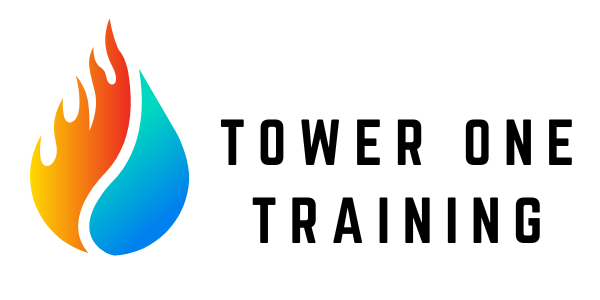Courses We Teach
Fire and Emergency Services Instructor Methodology: Instructor I (2019)
Description: This CSFM course provides the skills and knowledge needed for the entry level professional instructor to safely, effectively, and competently teach and deliver instruction from a prepared lesson plan utilizing instructional aids and evaluation instruments, adapt a lesson plan, and complete the reporting requirements to the local jurisdiction.
Designed For: Personnel preparing to be a college level fire instructor, Company Officer, or SFT Registered Instructor, or anyone who provides instruction in a public safety environment.
Prerequisites: Introduction to the Incident Command System (FEMA / IS-100.B) or National Incident Management System (FEMA / IS-700.A)*
Fire and Emergency Services Instructional Development: Instructor II (2019)
Description: This CSFM course provides the skills and knowledge needed for the intermediate level professional instructor to safely, effectively, and competently develop lesson plans and evaluation instruments, teach and deliver instruction, evaluate and coach other instructors, and analyze resources and formulate a program budget.
Designed For: Personnel preparing to be a college level fire instructor, Company Officer, or SFT Registered Instructor, or anyone who provides instruction in a public safety environment.
Prerequisites: Instructor 1: Instructional Methodology (2012) or (2019)
Employing Audiovisual Aids (2017)
Description: This CSFM course covers the principles and selection of media in the instructional process, employment of basic and advanced forms of instructional media, use of computers in the instructional process, and individualized instruction programs. Teaching demonstrations are required of all participants.
Designed For: Personnel preparing for a college level fire instructor, SFT Certified Training Instructor position, or career development for teaching SFT Instructional Curriculum.
Prerequisites: Instructor I recommended Instructor II recommended
Techniques of Evaluation (2017)
Description: This CSFM course provides the skills and knowledge needed for the intermediate level professional instructor to perform his or her duties safely, effectively, and competently. The curriculum is based on the 2012 edition of NFPA 1041 Standard for Fire Service Instructor Professional Qualifications and the 2012 edition of NFPA 1403 Standard on Live Fire Training Evolutions. At the end of this course, candidates for Instructor II certification will be able to develop lesson plans and evaluation instruments, teach and deliver instruction, and evaluate and coach other instructors. The Instructor II will also be able to analyze resources and formulate a program budget.
Designed For: Personnel preparing for a college level fire instructor, SFT Certified Training Instructor position, or career development for teaching SFT Instructional Curriculum.
Prerequisites: Instructor I recommended Instructor II recommended
Group Dynamics and Problem Solving (2017)
Description: This CSFM course is designed to develop leadership skills; group dynamics, problem-solving techniques, and interpersonal relations are utilized in staff meetings, brainstorming sessions, and conference meetings. Skills are developed for conducting formal public meetings, panel discussions, and forums.
Designed For: Personnel preparing for a college level fire instructor, SFT Certified Training Instructor position, or career development for teaching SFT Instructional Curriculum.
Prerequisites: Instructor I recommended Instructor II recommended
Water Rescue Technician (2021) Effective Jan 2025
Formerly Known As River and Flood Rescue Technician
Description: This course provides the knowledge and skills to prepare an emergency responder to conduct rescue operations in surface water, swiftwater, and floodwater in a safe and effective manner in accordance with AHJ policies and procedures. Topics include dynamic hydrology; recognizing and isolating hazards to rescuers and victims; managing a water rescue incident; incident size up and communication; working with air assets and watercraft; selecting and using PPE and rescue equipment; searching for and managing victims; constructing and using technical rope rescue systems and skills; dynamic swimming; performing non-entry and entry rescues from the shore or a platform; rescuing victims from a waterborne vehicle; and terminating an incident. This course incorporates awareness, operations, and technician training based on NFPA 1006 (2021).
Designed For: Public safety members with river and flood rescue responsibilities.
Prerequisites: Rope Rescue Awareness and Operations (SFT, FEMA, or IFSAC/Pro Board) or Low Angle Rope Rescue and Rescue Systems 1 Common Passenger Vehicle or Auto Extrication or Vehicle Extrication IS-100, IS-200, IS-700, and IS-800 (FEMA)
Water Rescue Awareness Operations (2021) Effective Jan 2025
Description: Topics include dynamic hydrology; recognizing and isolating hazards to rescuers and victims; managing a water rescue incident; incident size up and communication; working with air assets and watercraft; selecting and using PPE and rescue equipment; searching for and managing victims; constructing and using technical rope rescue systems and skills; dynamic swimming; performing non-entry rescues from the shore; and terminating an incident. This course incorporates awareness and operations training based on NFPA 1006 (2021).
Designed For: Public safety members with river and flood rescue responsibilities.
Prerequisites: IS-100, IS-200, IS-700, and IS-800 (FEMA)
American Red Cross Emergency Medical Response Instructor Trainer
(EMR-IT)
Description: The purpose of the Emergency Medical Response Instructor course is to train instructor candidates to teach the American Red Cross Emergency Medical Response (EMR) course. Instructor candidates who complete this instructor course will receive an American Red Cross Emergency Medical Response Instructor certification that makes them eligible to teach the EMR course for two years. Course Prerequisites
Prerequisites: To participate in the Emergency Medical Response instructor course, instructor candidates must:
Be at least 17 years of age on the last day of the instructor course.
Possess a current American Red Cross Basic Life Support for Healthcare Providers certification, or equivalent or higher.
Obtain all instructor and participant materials before entering the first session of the instructor course including:
Emergency Medical Response Instructor’s Manual
Emergency Medical Response textbook
Emergency Medical Response DVD


